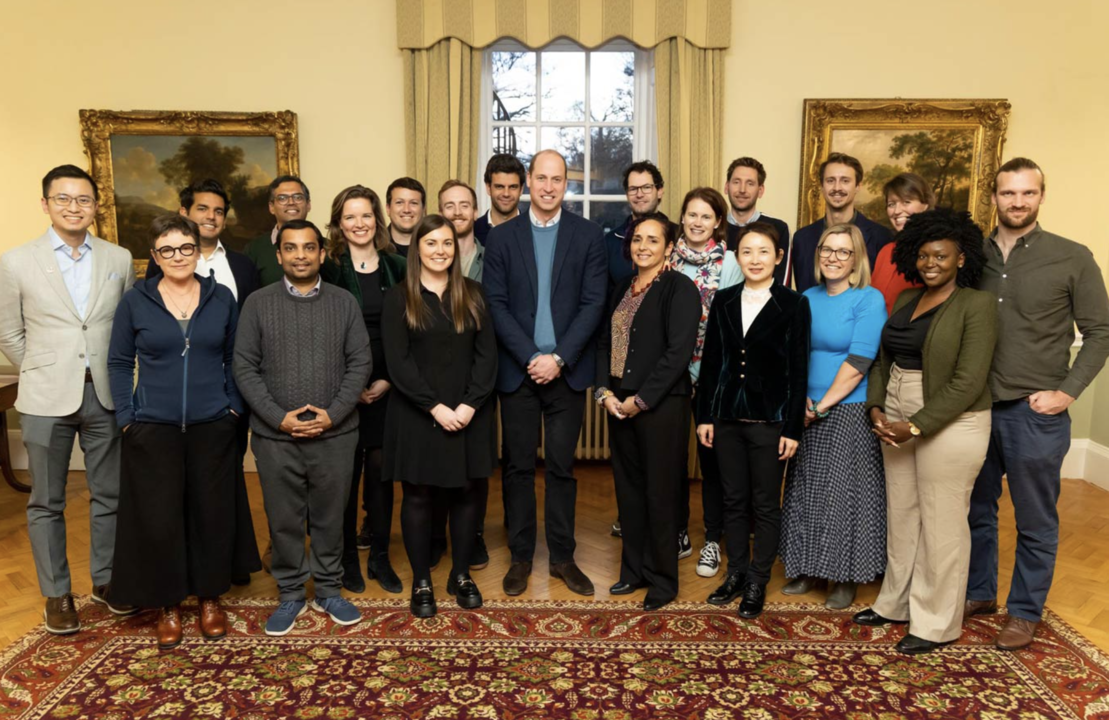
How might we scale community centered climate innovations?
I recently had the honor of spending a few days with the winners and finalists of The Earthshot Prize. If you haven’t come across the Prize yet then check out the impressive collection of climate innovations here . The purpose of the Prize is to select exciting solutions from around the world and, in addition to awarding £1M to each of five winners annually, to help grow these solutions through introductions to partners, customers and funders. To help kickstart the second cohort of finalists and winners, IDEO partnered with The Earthshot Prize to design a program of support that included a five day retreat focusing on leadership and growth. You can read some reflections about the retreat from my colleagues Stuart Getty and Conor Farese immediately below.
One of the questions that emerged from our few days together was how best to scale community centered climate solutions. Solutions such as the?Indigenous Women of the Great Barrier Reef and their goal of cleaning up our precious natural resources or the City of Amsterdam and their objective to go fully circular. The entrepreneurial community has spent several decades decoding how to scale new product or technology solutions. A range of playbooks, frameworks and theses have emerged including Crossing the Chasm, Lean Startup and Blitzscaling. We seem not to have the same depth of insight about how to scale solutions that rely on communities, human behavior and local knowledge.?
What principles, playbooks and approaches have you seen that might indicate the best ways to scale these truly important innovations?
A/CFO & CoFounders: *911Cyber.ai & *911Cyber.us @ *9Sight2020, LLC. of (F9N), A/CFO: Almonds B2B/BD CA.gov @ Christianna Ent., Farm-Fresno & Rancher, Ind.-Investor, USDA.gov, NAVY.mil & VA.gov Vet! @ +1 202.MID.CSAM! ??
1 年From a May 2022 article - https://www.nature.com/npjclimataction - I found this to be a "very to the foundation" paragraph: Urban neighbourhoods are an important scale of physical and social organization within the structure of cities (Rohe, 2009). It is in neighbourhoods that climate action gets “contested, deconstructed and reconstructed” (Wittmayer et al., 2014). Further, the neighbourhood scale is easily recognized by urban residents as a place for participation and experimentation around climate action (Rohe, 2009). Neighbourhood climate action moves beyond the individual or the state, and focuses on the community (Aylett, 2013; Joshi et al., 2022). Concepts like low-carbon localism are beginning to define and create a framework?for bottom-up climate action in urban neighbourhoods (Bradley et al., 2017). Further, the COVID-19 pandemic had restricted people’s movement and brought back the focus on their immediate neighbourhood surroundings (Joshi et al., 2020; Moreno et al., 2021).
???? ? Coaching IT and Business leaders to improve Business English communication skills?Helping you advance your career and get a life you want. ?
1 年Congratulations!
Looking for opportunities
1 年Amazing people & party
CEO@TechValiy | Generate $500K EXTRA revenue by building a revenue generating selling system | Powerful SEO, Targeted Cold Outreach, and Impactful Ads Campaigns ? techvaliy.com
1 年I'm so inspired by the #EarthshotPrize and the #Ideo initiative to promote #ClimateInnovation! It's amazing to see how much progress we can make when we come together to tackle the climate crisis. I'm looking forward to seeing the innovative solutions that come out of this initiative! #ClimateInnovation #EarthshotPrize #Ideo